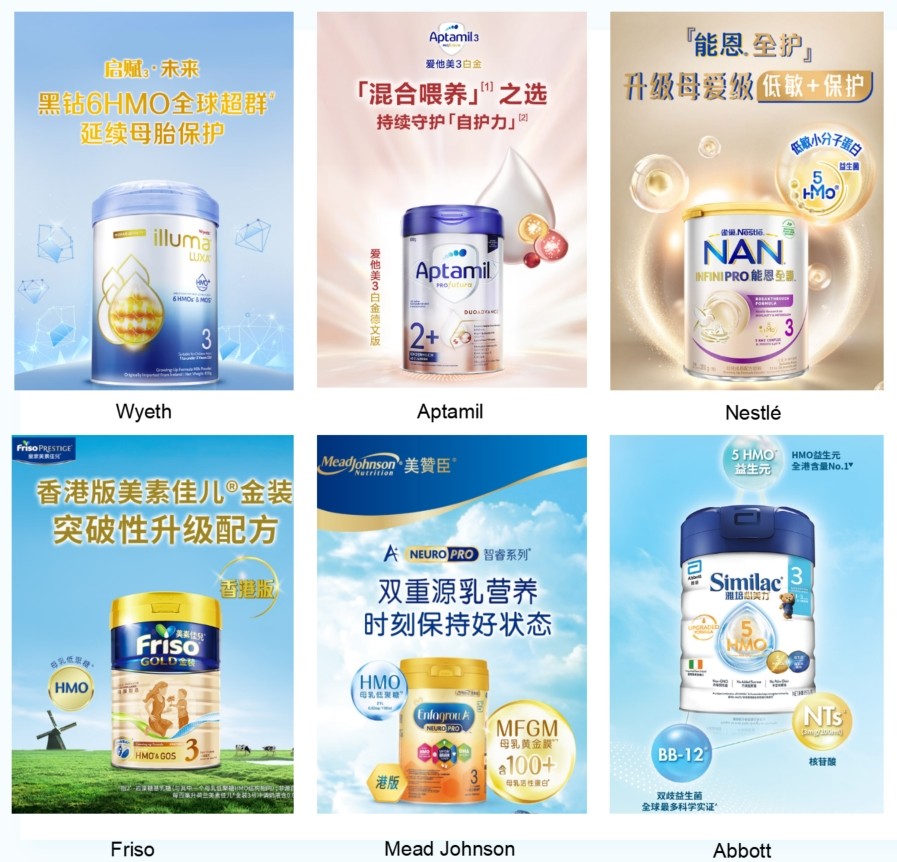On October 7, 2023, the China National Health Commission (NHC) announced the approval of two long-awaited Human Milk Oligosaccharides (HMOs), namely, 2'-fucosyllactose (2'-FL) and Lacto-N-neotetraose (LNnT), as nutritional fortifiers in infant and young children formula food, infant formula food for special medical purposes, and children's milk powder.

HMO is the third most abundant nutrient in breastmilk following lactose and fat. According to the Scientific Consensus on Human Milk Oligosaccharides (HMOs), HMOs play a pivotal role in maintaining the balance of gut microbiota and regulating the immune system for infants and children, offering multiple health benefits in the critical early stages of life. As infant and children formula milk is primarily made from cow and goat milk, which naturally contains minimal HMOs, the addition of HMOs is expected to significantly enhance the nutritional health of infants and children.
Following the approval of HMOs, prominent Chinese dairy enterprises, including Yili, Feihe, Junlebao, Yeeper, and Wondersun, rushed to announce the launch of their first HMO-containing milk powder products.1 Notably, these products are primarily targeted at the children's milk powder market, with Yili being the only enterprise to have officially announced the inclusion of HMOs in their infant formula.2 In compliance with regulatory stipulations, infant formula products with added HMOs must undergo formula adjustments or registration processes before they can be marketed. But leading dairy enterprises were well-prepared before HMO approval, thus the process for these adjustments or registration is expected to be expedited. As a result, a wave of new infant formula products is likely to emerge in the near future. Moreover, HMO-based formulations, as a new selling point, are likely to be applied in the high-end or ultra-high-end product ranges, thereby enabling brands to achieve product differentiation in the market.

Actually, the concept of HMO milk powder has penetrated the Chinese market for several years, primarily due to the efforts of international brands in the market. Renowned international infant formula brands such as Wyeth, Aptamil, Friso, Nestlé, Mead Johnson, and Abbott have been selling HMO-containing products in the Chinese market through cross-border e-commerce channels. With the approval of HMOs, it is anticipated that international infant formula brands will introduce their HMO-containing products into the offline market after successfully registering their recipes for these infant formula products. However, they also face intensified market competition, as Chinese brands catch up and snatch market share.

In recent years, HMOs concept has gained increasing popularity. According to the Milk Powder Think Tank, searches related to HMOs grew by 47.2% in the past six months. On Xiaohongshu, topics related to HMOs have garnered a remarkable 120 million views. With the approval of HMOs, there is strong anticipation for a significant surge in attention toward HMO-containing infant and children's formula milk powder. It is likely to evolve into the most prominent nutritional formula trend in the upcoming phase.
It's also worth mentioning that the substantial investments in extensive HMOs research and production innovations are poised to expedite the overall progress of the infant formula industry. Smaller and medium-sized enterprises lacking HMO technology may encounter greater challenges in establishing a solid presence in the infant formula market. Furthermore, it's anticipated that this segment will become more segmented to evade homogeneity in competition. Enterprises with differentiated development focus and holding an array of patented technologies are expected to emerge as leaders in the segment.
**Disclaimer: All images used in the article are from the Internet.














